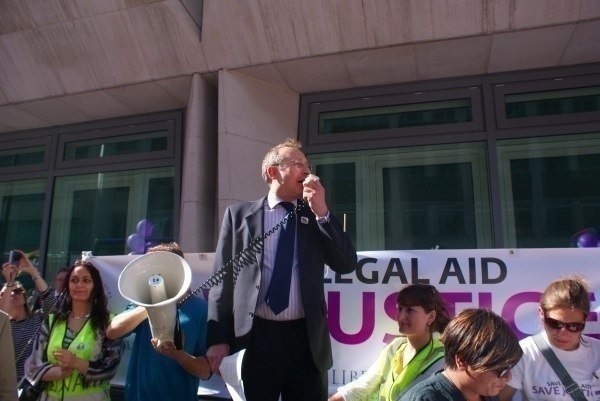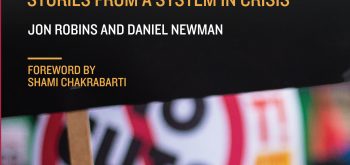MPs called on ministers to restore funding for early legal advice as well as welfare advice as a matter of urgency. The Labour MP Andy Slaughter, who opened the three-hour long Westminster debate last week, claimed that the aim to reduce the legal aid budget under LASPO had been ‘overachieved’, whilst the reforms had ‘underachieved in every other respect.’ Slaughter pointed out that the intention to reduce the legal aid budget by £350 million had been exceeded, and that the legal aid spend had in fact dropped by £950 million since 2010.
Several MPs argued that the legal aid budget cuts amounted to a ‘false economy.’ Reports collected from multiple groups including the Law Society, the Equality and Human Rights Commission, Mencap, Oxfam and Mind, were cited by MPs. For example, Labour MP Theresa Pearce cited the Law Society’s research which found that rather than cuts to family law having succeeded in their intention to encourage mediation, there had been a 56% decrease mediation cases due to the inaccessibility of advice from lawyers.
Statistics provided by the Labour MP Ellie Reeves illustrated how the cuts to early advice ‘cost the state more’. When there was access to early legal advice, 25% of cases were resolved in three to four months, rather than the average nine-month period it took for those without such access.
The debate raised concerns surrounding the complexity of legal aid applications. The Labour MP Andy Slaughter called on ministers to simplify the criteria for those applying for legal aid was made, with emphasis being placed on the importance of justice being accessible to all.
Disputing the government’s claim that legal aid is ‘available to those who need it most’, shadow minister for Justice, Gloria De Peiro, stated that the Tories have ‘made a mockery’ of the principle of access to justice. Talking about Labour’s pledge to restore funding for early legal advice, she said that ‘prevention is better than cure.’ A survey of some 2,000 people, commissioned by the Law Society, Bar Council and CILEx as part of Justice week, found that more than three quarters of participants (78%) held justice to be ‘as important as health and education’, yet only 20% believed there to be sufficient funds to support those requiring legal advice.
Andy Slaughter argued that there has been a sharp drop in the number of people eligible for legal aid in relation to welfare benefit cases, with disabled people having been ‘disproportionately affected’. In the year preceding LASPO (2012) 29,801 such cases had been taken compared to just 308 cases last year. Reports further revealed that whilst 80% of people were able to apply for civil law legal aid in 1980, the eligibility count now stood at 20%.
Labour MP Karen Buck recounted that it had been revealed during an all-party parliamentary meeting last week that the Ministry of Justice budget which, along with the Ministry of Housing, Communities and Local Government has already received the largest cuts, was to be subject to yet another cut from £6.3 billion to £6 billion. She pointed out that campaigners were ‘making the case for legal aid in a context in which justice funding is falling still further’.
Responding to the debate, the justice minister Lucy Frazer, came to the Government’s defence. She claimed that legal aid has and will remain available for the ‘highest priority cases where people are at their most vulnerable.’ Claiming that the government had not ‘stood still on legal aid’, Frazer stated recent improvements made to the provision, in the form of funding and the extending the scope of legal aid application. She stressed that the Government do make ‘a significant investment in legal aid’.






